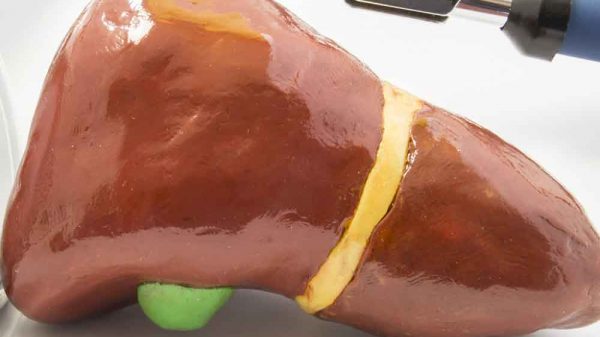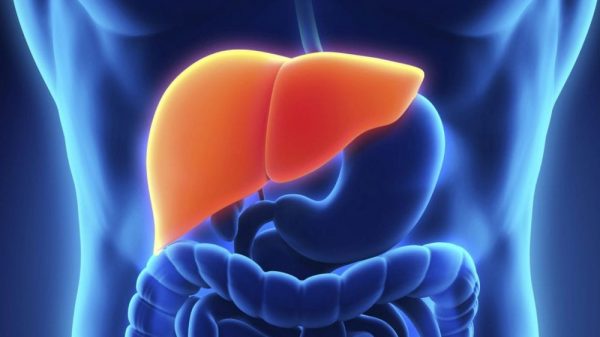Ascites cancer life expectancy means the estimation of time a person with malignant ascites has to live. Ascites is the medication term used to describe the abnormal buildup of fluid in the peritoneal cavity. It is usually caused by various conditions and diseases such as liver cirrhosis, abdomen cancer, tuberculosis, and heart failure (congestive). The signs of ascites may include bloating, abdominal pain, liver failure, and short breaths. Diagnosis of ascites involves physical abdominal examination to ascertain the amount of fluid accumulated. The doctor might request for a liver and kidney function tests. Liver diseases are the most common ascites cause.
Although as of now there is no complete understanding of how ascites develop, most available theories suggest that the major contributor is the increasing pressure in the blood vessels near the liver, this is called portal hypertension. This principle is similar to that of edema formation in other areas of the body due to an imbalanced circulatory pressure. There may be other contributing factors for ascites formation like water and salt retention.
Malignant Ascites
Malignant ascites is when the ascites manifest due to cancers present in abdominal cavity organs like colon cancer, lung cancer, lymphoma, ovarian cancer, pancreatic cancer, stomach cancer. This kind of ascites would usually develop during the late stages of these cancers. Malignant ascites are cancerous and thus can be referred to as ascites cancer.
There are two main factors that cause the formation of malignant cancer. The first one is lymphatic vessels obstructions which are suggested to be a mechanism of peritoneal cavity’s weakened drainage. The next one is the growth factor of the vascular endothelial which plays a role in alteration of the peritoneal membrane permeability. It induces angiogenesis and permeabilizes blood vessels. Thus leading to a heightened peritoneal cavity filtration.
Symptoms of malignant ascites include pain in the abdomen (53%), nausea (37%), vomiting (25%), swelling of the abdomen (55%), change in weight (5%), dyspnea (11%), feeling of fullness (6%), and anorexia (36%).
Ascites Cancer Life Expectancy
The life expectancy of ascites cancer patients is usually less than three months. A medical technique known as paracentesis is utilized in the removal of accumulated ascites when diuretics do not produce useful effects. Malignant ascites bring burdens to the patients as the person would pay regular visits to the hospital and this affects their day to day life. This category of people has a lesser ability to withstand therapies against cancer and this can potentially reduce their chances of survival.
Ascites Cancer Treatment
As soon as ascites cancer has been diagnosed, the first intervention before treatment will include diuretics, dietary restriction, and paracentesis. Diuretics are usually ineffective in certain types of ascites cancer because of the different pathophysiology for the accumulation of fluid. Patients who were responsive to diuretics were usually those with secondary ascites to massive hepatic metastases with an ascitic albumin serum gradient of less than eleven grams per liter.
Paracentesis involves the intermittent draining of the fluid by inserting a fine tube into the affected area. This only provides temporary relief from symptoms in 77-91% of the cases. It also implies multiples admissions in the hospital. Hospitals perform this as an inpatient or day case procedure. Most patients prefer to wait until the fluid that has been accumulated is big enough in order to avoid frequent visits to the hospital.
The permanently placed catheter is a better alternative to paracentesis as it will avoid multiple hospitalizations. Here a catheter is inserted into the cavity (abdominal) directly through the wall of the abdomen with either a percutaneous catheter or subcutaneous tunnel. The percutaneous catheter is directly inserted into the wall of the abdomen e.g venous or peritoneal catheters. The result is that fluid Is drained outside or other parts of the body.
A treatment option is known as “alfapump” offers a new and needed means for managing ascites. An advantage of this alfapump is that frequent liquid biopsies can be conducted through urine sample analysis. This will have materials that are significant to the case directly from the cavity, like cancer cells.
Coping Mechanism Tips
Hearing the doctor call out your life expectancy is not pleasing news, people react to this news differently. Both the patients and family are devastated and at this point, they might need help.
- There are support groups that are organized to meet the needs of such people, it is best if they search for one and join. The doctor may be able to recommend one for you too.
- Now more than ever the patient needs all the love and care that he or she can get. But make sure to act normally to avoid rubbing it in the patient’s face as it can get overwhelming.
- Do not miss hospital appointment and treatment days, for example,e if you have been scheduled for fluid drainage on a particular day make sure to go as this helps to manage the condition.
- The doctor will provide as much safe treatment as is possible for your case to help relieve your symptoms.
- It is almost inevitable that the doctor’s words might keep on ringing in your ears but try as much as possible to block it out. Do not dwell on it as this might cause depression and stress which you do not need.
- Live one day at a time. Engage in your favorite activities that your condition can still permit. Enjoy the sun, the rain, look out through the window, appreciate nature. Whatever it is just to make sure that your mind is positively engaged.
Your ascites cancer life expectancy should not conquer you, rather conquer it.























